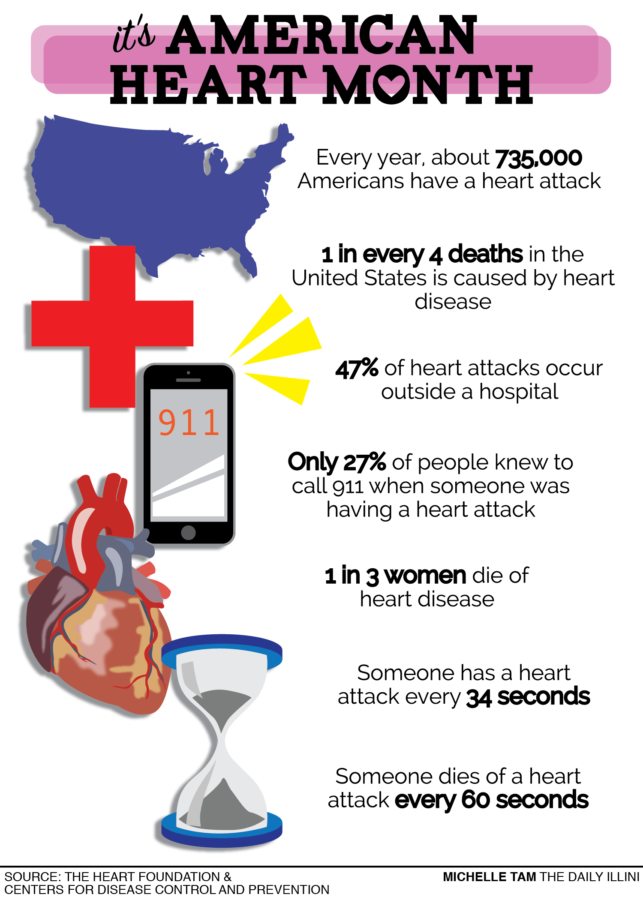Defense against disease: University researchers talk heart disease prevention during American Heart Month
February 17, 2016
Until suddenly a slight pressure in the chest turns into an overwhelming discomfort, and until shortness of breath turns into almost no breath at all. The room starts to spin and the nausea hits in a wave of dizziness and confusion. Droplets from a cold sweat start to form and the extremities begin to give out, forcing the body to the ground.
In the United States, Heart Disease is the leading cause of death, killing over 611,000 people each year, according the Centers for Disease Control.ss
Heart disease is caused by a “plaque buildup in the walls of the arteries that supply blood to the heart and other parts of the body.” During February, American Heart Month is used to spread awareness toward the disease.
But even though heart disease is typically labeled as an elderly disease, Kenneth Wilund, associate professor in the Department of Kinesiology and Community Healthss, said that major prevention starts young by simply maintaining a healthy lifestyle.
Get The Daily Illini in your inbox!
“The leading cause of death in western societies is also one of the most preventable causes of death,” Wilund said. “The decisions students are making today are going to impact their risk of developing cardiovascular disease later. They may be young; they may not be thinking about cardiovascular disease. These are the years that impact your risk of disease. It doesn’t just pop up when you’re 60; it builds from the time you’re born.”
According to the CDC, almost half of heart disease victims were physically inactive, had poor eating habits, consumed alcohol excessively or were overweight before developing the disease.
Wilund said that many heart disease victims are unaware of their condition until they have their first heart attack. People put themselves at risk just by consuming alcohol and fast food — activities that may seem normal to college students.
Jin Hee Jeong,ss graduate student in AHS, said many patients who have heart disease or previously had a heart attack often fear exercise because of the damage that they think it can do to their bodies. In reality, however, the damage that is done when neglecting to be active is greater than the damage of exercising with heart disease.
“Every single activity has their own risk even for healthy people; however, there is more benefit (than risk) engaging in exercise. A moderate level of physical activity every day is going to increase (your) life expectancy,” Jeong said.
Jeong conducts research about heart disease and renal failure to understand each patient’s lifestyle and encourage them to face any fears they have regarding post-heart-attack exercise. She said that helping them to overcome their fears is a challenge but necessary for recovery. Jeong said that she sees patients greatly benefited by their exercise habits.
“We see patients every day and are told how they feel better, happier, more energized by engaging in exercise more,” said Jeong.
Nikita Mehrotra, University alumna, worked in the same lab as Jeong, the University’s Renal and Cardiovascular Disease Research Laboratory.
Mehrotra said that it’s really easy for students to be tempted into unhealthy decisions, like ordering take-out or going to a fast food restaurant on Green Street. She suggests planning out meals at the beginning of the week so that students don’t overindulge. Eating in moderation and balancing out food intake will help students be healthier in years to come.
“Taking care of yourself, even now, leads to good habits and maintaining those habits over time would increase your longevity. You shouldn’t wait until you’re older to worry about your health,” Mehrotra said.
Mehrota said that once these steps are taken, society will progress toward preventing the deadliest disease.
“If we are the generation to take some proactive steps toward this problem, then we can probably prevent future generations from getting heart disease, diabetes or other chronic illnesses,” Mehrotra said.







